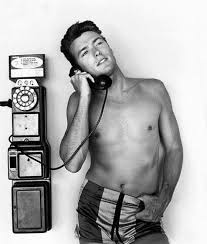
Introduction
Clint Eastwood, an enduring emblem of American cinema, has profoundly influenced the film industry over the past six decades. From his iconic roles as the rugged cowboy to his prestigious works behind the camera, Eastwood’s contributions span various genres and narratives. His relevance in contemporary film discussions highlights the shift in storytelling and characterization, making him a pivotal figure worth examining.
Career Highlights
Clint Eastwood was born on May 31, 1930, in San Francisco, California. He first gained fame in the 1960s through his role as the Man with No Name in Sergio Leone’s Spaghetti Westerns, which redefined the Western genre. This breakout performance led to a series of successful films, including ‘A Fistful of Dollars’ and ‘The Good, the Bad and the Ugly’. However, Eastwood proved his versatility as an actor with his role in ‘Dirty Harry’ (1971), where he presented a morally complex character that resonated with audiences.
Transitioning into directing, Eastwood made his mark with the critically acclaimed ‘Unforgiven’ (1992), which won the Academy Award for Best Picture and Best Director. He followed this with other notable films such as ‘Mystic River’ (2003), ‘Million Dollar Baby’ (2004), and ‘American Sniper’ (2014), each showcasing his evolving narrative style and the depth he brings to character development. In total, Eastwood has garnered multiple Academy Awards and remains one of the few filmmakers to successfully balance both acting and directing.
Recent Works and Influence
In recent years, Eastwood has continued to challenge societal topics through film. His latest projects, including ‘The Mule’ (2018) and ‘Richard Jewell’ (2019), reflect his commitment to storytelling that confronts moral ambiguities and real-life events. They demonstrate his ability to engage audiences with stories that are both poignant and thought-provoking.
Conclusion
Clint Eastwood’s legacy is that of a transformative figure in Hollywood, one who not only shaped the Western genre but also set high standards for narrative complexity in film. As he approaches his 93rd birthday, his influence continues to be felt in the works of emerging filmmakers. For audiences and film scholars alike, Eastwood’s journey offers a unique perspective on the evolution of cinema in the past century and hints at the future directions in which storytelling might go. An examination of his career reveals not just a celebration of an actor and director but an ongoing dialogue about morality, heroism, and the human condition in film.



